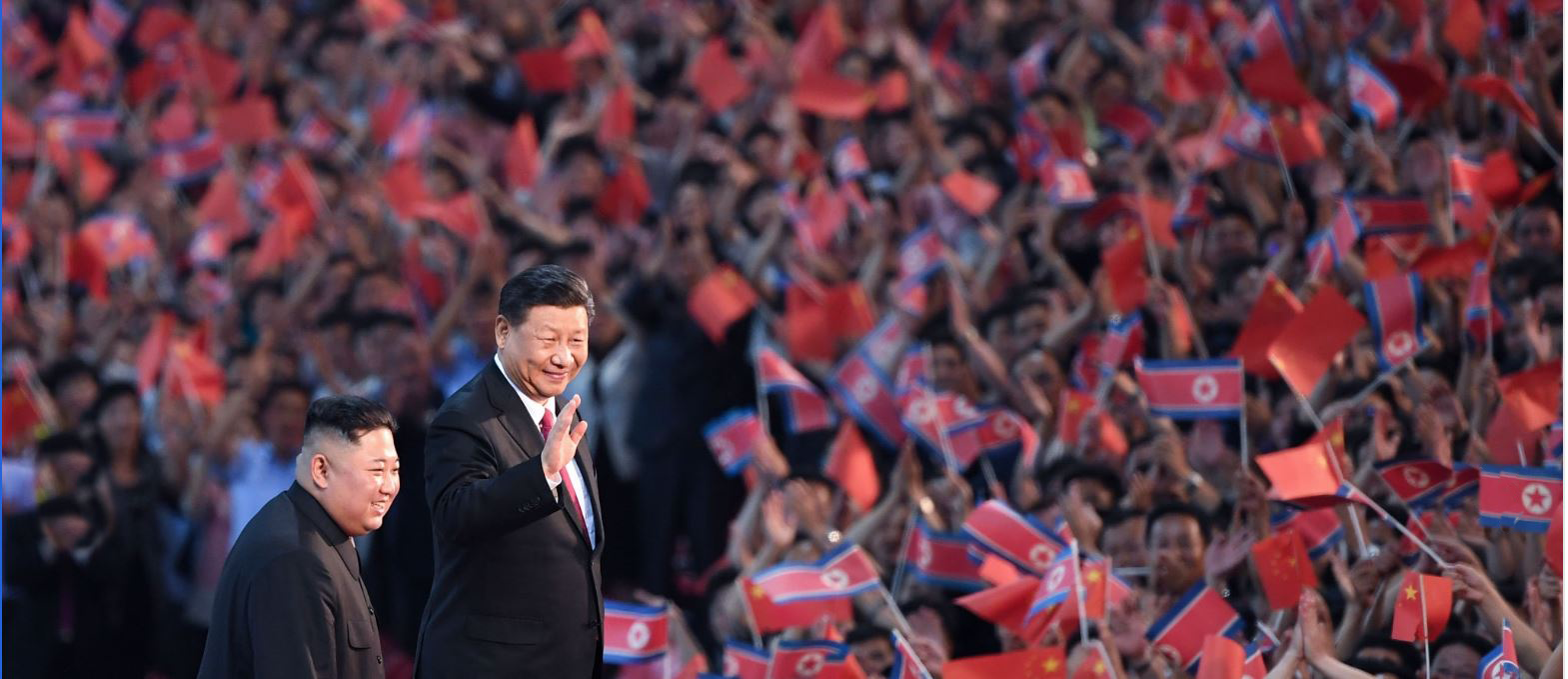Weekly Briefing: TikTok times a billion; China’s gay capital; the China Space Station


Hello, readers! The China Project Weekly Briefing is our newest feature, detailing the most important China news from the past week. It also comes in the form of a newsletter — sign up using the box on the right of this post / top of our homepage.
~
The first debates for the American presidential election candidates from the Democratic Party begin tomorrow. We’ve compiled a Presidential Candidate China Tracker to help you make sense of each of the Democratic hopefuls’ attitudes to and likely policies on China.
We’ll update it frequently and add to it throughout the long election season, so check back often.
If you’re in New York, “The New Normal: The perils of being a Chinese scientist or engineer in the U.S.” is the title of a panel discussion at the China Institute on June 27.
If you want to get all of our coverage and informed commentary, please subscribe to The China Project Access: for less than the cost of a glass of wine a month, you’ll receive timely updates and insights about the latest news from China directly from our editor-in-chief Jeremy Goldkorn. You’ll also get discounts on a range of The China Project products and events, plus exclusive early access to Sinica Podcast episodes before the general public, and much more. Click here to learn more and to sign up!
—The Editors
1. TikTok reaches 1 billion downloads, challenges Facebook

Photo credit: The China Project compilation of screenshots from TikTok feeds in the U.S.
What happened?
In a major milestone for a Chinese technology company, the short-video app TikTok, known as Douyin (抖音 dǒuyīn) in its home country, was downloaded over 1 billion times as of earlier this year. That’s according to statistics from Sensor Tower, a US company that tracks apps.
- Chinese companies had already produced several mega-apps, including the social media-and-everything-else app WeChat that also has over one billion active users, but none of those apps has ever had global reach.
- TikTok, by contrast, is an international sensation, with its addictive video algorithm making junkies out of millions from India to Thailand to the United States.
- Tiktok’s parent company Bytedance, which originally was known for its news app Toutiao, now has more employees than Facebook.
What’s next?
Bytedance now seeks to take a larger bite of the global video advertising market currently dominated by Instagram, Snapchat, and Youtube. The company has made a series of high-profile hires and publicity appearances, including at the Cannes Lions festival, where Fast Company says “TikTok’s rising cultural cachet is palpable—and seemingly irresistible to marketers.”
2. Chengdu, capital of China’s rainbow economy

Photo credit: prideandmore.com
Chengdu, the capital of Sichuan Province in southwest China, is one of the country’s most pleasant, laid-back, and tolerant cities. Bloomberg reports (porous paywall) that its relatively open-minded atmosphere is creating a vibrant LGBT scene, attracting many companies hoping to tap into the rainbow economy — “the ecosystem of consumers, companies, and workers that serve the nation’s LGBT population.”
- $300 billion a year is the estimated size of China’s rainbow economy, based on state media reports.
- Gay dating app Blued recently voted Chengdu the gay capital of China, although the city has had this reputation for some time: In 2010, a user of the social network Douban wrote a post explaining (in Chinese) why Chengdu was China’s “Gay 都” (the Chinese character is pronounced “dū” and is both the second character of Chengdu and the word for “capital city”).
- There were 140,500 gay men in Chengdu — a city of 16 million people — according to statistics cited by Bloomberg. But a UN study has found that only 5 percent of China’s LGBT population is open about their identities.
- China decriminalized homosexuality in 1997 and removed it from an official list of mental disorders in 2001, but the LGBT community is still vulnerable to discrimination and police harassment.
For a long discussion of LGBT life in China, listen to this Sinica Podcast with activist and filmmaker Fàn Pōpō 范坡坡.
3. The China Space Station is coming

Photo credit: A rendering of what the CSS will look like, by the China Manned Space Agency.
The story: Within about three years, the China Space Station (CSS) is slated to be fully operational. SpaceNews reports that “China is maintaining that the target for completion of the CSS is ‘around 2022.’”
The context: The CSS is the planned successor to Tiangong-1 and Tiangong-2, which were designed as prototype space laboratories. The CSS is going to be the real deal: a large, fully functional manned space station, open to the astronauts and experiments of nations and companies friendly to China.
The details: Nine scientific experiments proposed by international teams to be performed on the CSS have been accepted by the China Manned Space Agency. Nature magazine has more information about the program and the experiments, which range from studies on fire and fluid behavior to the effects of radiation in space on DNA:
- There was a “special effort to encourage participation from…low- and middle-income countries including Kenya, Mexico and Peru.” Scientists from Belgium, France, Germany, India, Italy, Japan, the Netherlands, Norway, Mexico, Poland, Peru, Russia, Saudi Arabia, Spain and Switzerland are also amongst the teams whose experiments were selected.
- None of the experiments come from the United States. Nature magazine notes that since 2011, the U.S. “has forbidden NASA researchers from collaborating with China without congressional approval,” but that would not stop a scientist not affiliated with NASA from applying. Some did, but no project with the participation of an American scientist was selected.
Why it matters: The future of humans in space is being shaped now, and it’s looking a lot less American.
4. Don’t expect a trade deal when Trump and Xi meet

Photo credit: Georgetown University Press
A week ago, Donald Trump tweeted that he had a “very good telephone conversation with President Xi of China,” and that he would be meeting with Xi at the Group of 20 (G20) international summit in Japan.
- Stock markets were exuberant at the prospect of a resumption of high-level U.S.-China dialogue. The Washington Post reported that multiple major indices of stocks jumped by one percent or more.
- We are less optimistic: It has been nearly a year since the beginning of the U.S.-China trade war, as marked by the first day of large-scale tariffs being in effect. We think that Trump has proven himself to be the master of maximalist demands, rather than an artful dealmaker. In the leadup to this summit, as with previous underwhelming ones, the Trump administration has signalled it is ready to go ahead with even more tariffs if a deal does not form.
- Chinese state media is not signalling much room for compromise, with the Communist Party’s official newspaper, the People’s Daily, prominently displaying an opinion piece (in Chinese) that concluded, “Retreating on any issue that concerns China’s core interests means giving up the future of China’s development!”
The G20 summit is this Friday and Saturday, June 28-29. We don’t know yet exactly when the Trump-Xi meeting will happen, or how in-depth it will be, but expect a full report and analysis on the trade war trajectory in next week’s Briefing.
5. A quarter million North Koreans greet President Xi

Photo credit: Xinhua News Agency.
“A major diplomatic action” is what Chinese state media outlet Xinhua called the first visit of Chinese leader Xí Jìnpíng 习近平 to North Korea, which lasted two days from June 20–21.
Xi was greeted by 250,000 cheering North Koreans, the South China Morning Post reports, noting that the event was a huge deal for North Korea, as it was declared the first “state” visit between the two countries since they established diplomatic ties in 1949. Further CCTV footage of the grand welcome shows how eerily reminiscent it was of China’s own Cultural Revolution mass gatherings.
U.S. President Trump is a major reason for this state visit, in two significant ways:
- Kim Jong-un, the North Korean dictator who was isolated internationally — including by China — only two years ago, has been legitimized by two unfruitful summits directly with the American president.
- China and North Korea are locked in conflicts with the United States, and both see closer bilateral relations as a way to bolster their negotiating positions.
Scholar John Delury has a slightly different take in the New York Times (porous paywall). In his view, “It’s not about nuclear weapons, leverage with President Trump or the trade war,” but it is about “the Chinese government’s anxiety that Mr. Kim might be tempted to defect, as it were, to the other side.”
The China Project Weekly Briefing is sent as a newsletter every Tuesday — subscribe by entering your email into the box at the top of our homepage. To get daily roundups of China news, access to a members-only Slack channel and exclusive expert chats, and discounts on other The China Project events and products, sign up for The China Project Access today!





